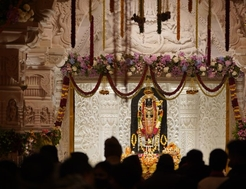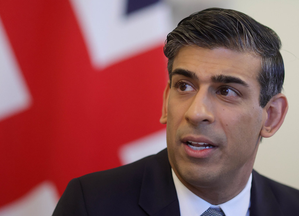Mumbai, March 18 (VOICE) One of the greatest blessings of the Smartphone Internet era is the ease of ordering snacks, food and desserts from anywhere in the city/town or the district, for self, family, parties, social or corporate events.
Through one or more of the hundreds of Apps, one can place the most outrageous orders, ranging from the humble ‘Vada-Pav’ to ‘Shawarmas’ – and every possible dish in between.
Once the App accepts the order, a series of precision processes are triggered right from inside the kitchens to the delivery boys/girls who pick it up, and finally ring your doorbell – all within 30-60 minutes – for that joyous, drooling smile…!
Simple as it may sound, the delivery business is actually bizarre and complex, involving a lot of human elements, the critical being the delivery boys-girls who serve as the ‘last-mile’ link between the food outlets and the hungry customer.
One such delivery boy-cum Area Manager attached to an app-based company, G. V. Kishore, 35, of Borivali, shares some insights into the low-profile business that quietly ‘delivers’ with clockwork precision and an efficiency that could merit a top Sigma rating.
There are an estimated 500,000 carriers (delivery boys/girls) in Mumbai alone who effect an average of around 10 deliveries daily, coming to more than 50,00,000 parcels being rushed from one place to another for nearly 18 hours daily, with the weekend numbers bulging by at least 25 percent.
“Besides, there are the corporate food deliveries that would account for another 25-30 lakh parcels on weekdays but crashes on weekends. After the Covid-19 pandemic, most companies have discontinued their in-house canteens barring beverages and now allow employees to order food online with discounted corporate coupons,” said Kishore.
Another deliverer from Ghatkopar, Sanjay Chauhan, 31, serving through various Apps, haunts corporate offices with big and small food packets daily, and supplements his income with weekend home deliveries.
“There are times when I take 8-10 food orders in a single delivery to a particular office where the entire department staff would sit and enjoy their meals. But in BPOs, IT companies and others, orders keep piling till even 2 a.m., and though the payment increases, it takes a toll on our health,” Chauhan said.
For many of the big or multinational fast-food outlets, the boys-girls are on a basic salary of between Rs 12,000-Rs 15,000 per month, six working days, plus between Rs 25-45/parcel delivery, plus the tip given on the app or at the time of handing over the packet.
“Taking in account various parameters including the distance, on an average, an efficient delivery boy can make between 18-20 deliveries, and the gross monthly pay can be around Rs 45,000 per month,” said Chauhan.
Here, there’s a catch as the delivery person must foot the scooter-motorcycle fuel and maintenance of upto Rs 12,000, plus the concerned app’s commission and service charges of another up to Rs 5,000, leaving a net monthly pay of barely Rs 28,000.
There is huge competition with thousands of youngsters queuing up to work as delivery boys-girls daily, and most outlets keep ‘hiring’ to keep the existing carriers on their toes.
“If I am five minutes late to pick up my parcel, it goes to the next person in the queue and I am blocked for a week. The outlets don’t allow us to even use their toilets during an emergency, waiting outside in the rain or sun. Recently, some multi-storeyed towers even banned the lift for deliverers forcing us to trudge up 18-25 floors with the parcels,” rued Kishore.
At one such society in Kandivali, a couple of the big delivery companies blacklisted it for 24 hours, and the next day, the building authorities were on their knees as all deliveries were suspended, and the lift use was permitted.
Both Kishore and Chauhan said that even with the kind of critical services they provide, there is absolutely no job security, hire-and-fire policy even for seniors, “use-and-throw”, no unions, no formal salary structures or any government forum for redressal of their grievances.
They said that in the past few years, owing to the economic conditions, some highly qualified persons with double degrees or doctorates, laid-off professionals who used to earn lakhs of rupees each month, have taken up the delivery option, at least to tide over the crisis.
Added to this are reports of some delivery boys allegedly indulging in illegal activities or crimes – ranging from thefts, pilferage, extortion, molestation, rape or murder that become screaming headlines.
“However, if you study the data, such instances crop up once in one-two-three years, its not a daily occurrence, and in most cases, there is sufficient provocation for the delivery boy’s adverse reaction,” the duo claimed.
They said their entire attention centres on completing one delivery on time and rushing for the other, to ensure ‘roti-kapda-makaan’ for their own families in these days of skyrocketing inflation and massive unemployment.
On measures to improve their lot, Kishore said there’s a need to organise such a big work force that cannot be wished away as over 75 percent business had shifted online now in the post-coronavirus economy, companies/Apps must lower the service charges and hike the per-delivery rates, a compulsory tipping policy as in western countries, and job security.
Chauhan suggested basic restrooms and drinking water facilities at all outlets which all delivery boys-girls can access irrespective of their affiliation, other benefits like accident insurance through the company and a month’s paid notice instead of abruptly terminating services, et al.
(Quaid Najmi can be contacted at q.najmi@ians.in)

























































